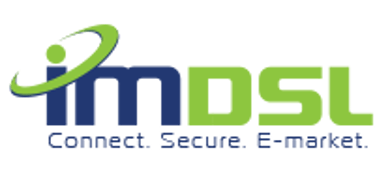Understanding Leased Lines: A Premium Internet Connectivity Solution


What is a Leased Line?
A leased line, often referred to as dedicated internet access (DIA), is a dedicated telecommunications connection between two points. It provides a permanent, symmetrical connection that offers businesses high-speed internet access without the constraints and congestion of traditional internet services. Unlike typical broadband connections that share bandwidth among multiple users, a leased line guarantees a specific amount of data transfer capacity, making it ideal for organizations that depend on reliable internet performance.
Benefits of Leased Line Internet Service
The primary advantages of opting for a leased line internet service include enhanced reliability, consistent performance, and superior security measures. Businesses that require uninterrupted internet access for operations can trust that a leased line will provide them with a stable connection, unaffected by peak traffic periods. This uninterrupted service is critical for organizations engaged in video conferencing, online transactions, or any cloud-based applications that demand high bandwidth.
Moreover, the dedicated nature of leased lines means that there is less potential for interference or slowdowns caused by other users. This offers companies a much-needed edge in maintaining productivity levels and ensuring customer satisfaction, especially for those in sectors like finance or healthcare where delays can result in considerable losses.
Leased Lines vs. Traditional Broadband
To illustrate the difference between leased lines and traditional broadband, it is useful to visualize an internet connection as a road. A traditional broadband connection can be likened to a multi-lane highway where numerous vehicles (data packets) travel in both directions. This arrangement leads to inevitable congestion, particularly during peak hours, which affects data transfer speeds. In contrast, a leased line is comparable to a private highway—designed solely for a single business's use. This exclusive access allows for the assurance of higher speeds and consistently reliable connectivity.
Additionally, leased lines typically come with enhanced support and faster response times for any issues encountered. For businesses, this can mean less downtime and more effective resolutions to connectivity challenges, which is crucial in a competitive market landscape where every second counts.
Conclusion
In summary, leased line internet services represent a robust solution for businesses striving for optimal internet performance. It guarantees both high speed and consistent reliability, with added security that is not generally found in standard broadband plans. By investing in a leased line, companies can enhance their operational capabilities and ensure that their teams remain connected and productive, regardless of traffic fluctuations in the broader internet. As organizations increasingly rely on digital services and infrastructure, understanding leased lines becomes essential for anyone aiming to maintain a competitive edge.
CONTACT US:
203, 26th July St., Sphinx Square, El Mohandeseen , Cairo, Egypt
Mobile : +20 1028905553
Email : info@im-dsl.com
